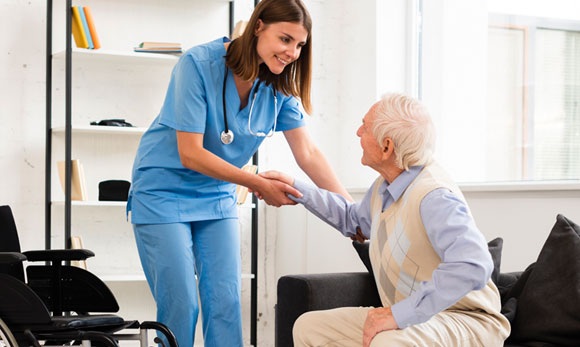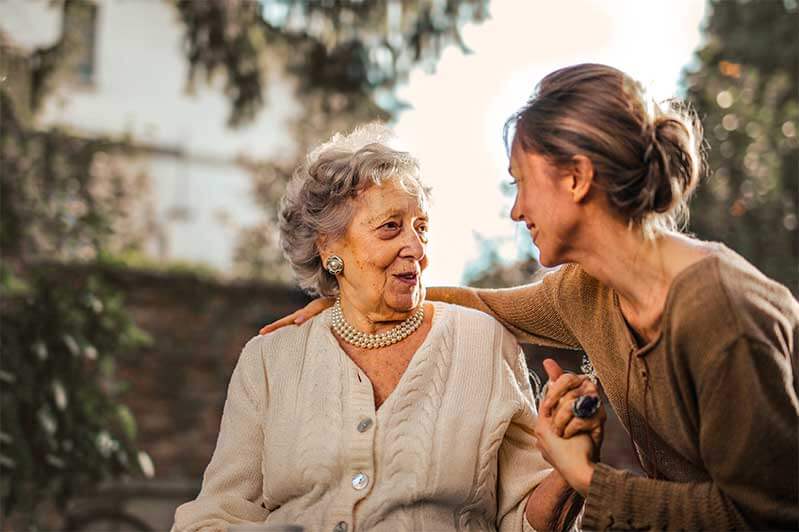Hypothermia- In the Elderly

Hypothermia- In the Elderly
Winter is officially here and as such we would like to discuss environmental emergencies- “hypothermia”- and the elderly. Genesis Home Care hopes everyone’s new year has started of to a great start. Goals have been jotted down, new aspirations have formed, and morale is high. If you have read any of our previous blogs you know that safety is something that we try to highlight. As such, as we finalize the first half of January 2019 we would like to again remind everyone of the importance of guarding yourself from the winter chills.
What is Hypothermia?
Hypothermia is a medical emergency that occurs when your body loses heat faster than it can produce heat. This causes a dangerously low body temperature (normal body temperature is around 98.6 F or 37 C). Hypothermia occurs as your body temperature falls below 95 F (35 C).
It is assumed that hypothermia only occurs in freezing climates or to those who are outside, and unprotected from the elements during very cold weather for extended amounts of time. Not wrong but not completely true. Hypothermia can take place in weather well above the freezing temp of 32 degrees F.
This winter has been friendlier to us than last winter (so far), but that doesn’t place us in safe waters.
Lets look at a scenario and examine an all to common happening. What if its 50 or 60 degrees outside, the sun is up, the wind isn’t blowing and you have a person, lets say Ms. Ruby who is over the age of 65. Ms. Ruby has medical co-morbidities and is on medications that increases sensitivities. She is on a fixed income and tries to cost reduce some expenses by keeping her heat low. Ms. Ruby is more sedentary than she is active, and she doesn’t get frequent visitors. Do you think that Ms. Ruby is running the risk of dropping her body temperature?
This is a perfect situation where Ms. Ruby’s core temp can begin to fall to dangerous levels. Her body temp can keep falling and hypothermia can set in. This is an all to common reality for many people especially our seniors. Seniors are more likely to have those other factors that complicate the bodies ability to regulate temperature.
Preventing Hypothermia-
When your body temperature drops, your heart, nervous system and other organs can’t work normally. Left untreated, hypothermia can eventually lead to complete failure of your heart and respiratory system and eventually to death.
Our very young and elderly populations are most vulnerable to these environmental conditions. During winter months both outdoors and indoors, proper dress attire should be considered. Thick socks on your feet, gloves for hands, insulation for your head, and layering of articles of clothing.
In the winter time people tend not to hydrate as much but staying hydrated and consuming a nutritious diet is just as important as in the summer months. You should also minimize alcohol intake, alcohol makes your blood vessels expand which increases heat loss and slows down your shivering ability- which shivering is the bodies mechanism of creating heat.
You should make it your mission to know your medicines. Are any of them blood thinners? Do they make you more susceptible to hypothermia? And try to keep your home at a reasonable 68 degrees.
If you know someone who lives alone pay them a visit. It will be good for their morale to have a visitor for a short time and laying eyes on someone far exceeds a phone call. Pay attention to how they are living, are they eating, staying hydrated? Read their body language, look for signs that they may be pushing the limit.
Signs of Hypothermia-
If you find yourself or see someone that is noticeably cold check what we call signs and symptoms to quickly assess the condition; shivering, slurred speech, slow or shallow breathing, weak pulse, clumsiness, low energy, confused, or passed out. If you notice any of these signs and symptoms try to get warm as soon as possible give warm drinks (non alcoholic) and contact emergency services.
With safety out the way we would like to wish everyone a continued blessed new year. If you have any questions or concerns feel free to contact us. We can assist with an in home safety inspection from a firefighter emergency service perspective. We also, go over your emergency preparedness bag- which is very important for every house hold. If you don’t know what that is we can explain that as well.
Disclaimer: This article is intended as a friendly reminder with recommendations. It is not medical advice, direction or prescription of any sort. Please refer to professional services for any health-related questions, concerns and relief.

Contact us
Reach Us
Our dedication to caring for our clients is more than just a job. “It’s a way of life.” Let us help you maintain your independence today!
4751 Best Road Ste 400B College Park GA, 30337
Phone: (770) 808 6070
Fax: (770) 679 8593






